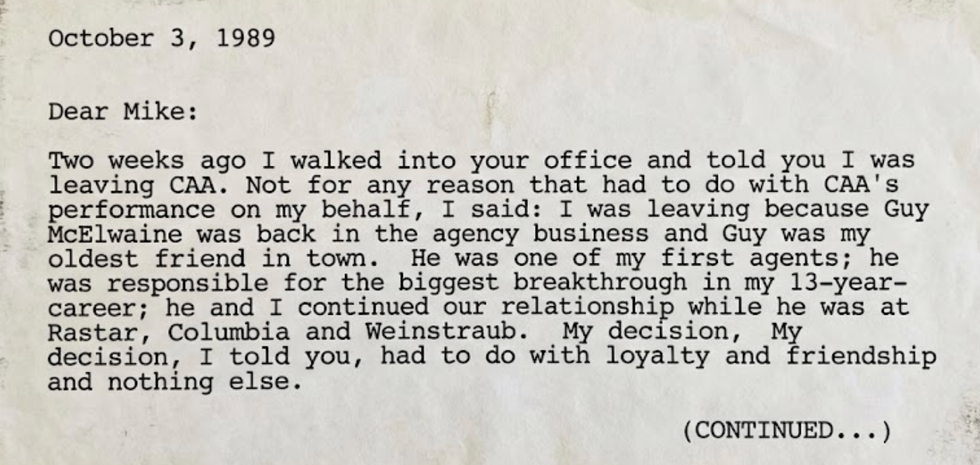A couple of years ago, I worked as a mentor coach for beginning high school English teachers. We met once a month to discuss best practices and classroom management strategies—but mostly, we met to give these new teachers an opportunity to talk and ask questions. And boy, did they. They wanted to know about communicating with parents, dealing with administrators, and lesson planning. They wanted to know about scheduling conferences, evaluations, and implementing individualized education plans for students with disabilities.
Mostly, though, they wanted to know if it was always so hard. My co-coach and I answered as gently as we could: The first year is hardest, but teaching is always hard. Great, but hard.
It’s a lot to ask of someone—getting them fired up for a career that’s always going to be challenging and tends to not be very financially rewarding, and that’s simultaneously lacking in respect and drowning in sentimentality. Small wonder that so many teachers burn out.
Money is often a powerful motivator to stay in a job, but a high salary isn’t typically in the cards for beginning teachers. And even if it were a possibility, studies have shown that over time, financial rewards aren’t enough to retain top talent, no matter the gig. So, what can we offer besides a bigger paycheck that sends the message that teaching is still a worthy—and worthwhile—profession?
Put time and attention into building and maintaining an effective mentoring program.
The concern I heard—and still hear—most frequently from new teachers, about-to-be teachers, and people thinking about being teachers is “Who will be looking out for me?” New teachers need a consistent, available source of support and encouragement, and getting it makes a difference. A study released in 2015 by the National Center for Education Statistics found that 92 percent of first-year teachers assigned a mentor came back for a second year, while only 84 percent of teachers without mentors returned. Even more compelling, after five years, 86 percent of mentored teachers were still in the classroom, while only 71 percent of unmentored teachers were still on the job. For those doing the mentoring, this might be compensated with a small stipend, compensatory leave time, or recertification points.
Secure their benefits.
Fully paid health insurance and retirement pensions are often offered to educators. Keep them—cutting these benefits means that, in addition to accepting a low salary, new teachers are expected to foot the bill for their healthcare now through insurance, as well as later in retirement.
Commit to tuition reimbursement, or a partnership for free classes through a college or university.
This is particularly relevant for courses that are required to receive or maintain licensure. Given that new, fresh-out-of-college educators are just starting to feel the burden of paying their student loans, eliminating the costs of additional teaching endorsements or other employment-necessitated training really can give their bank accounts a boost. In a report released in 2016, the nonprofit Learning Policy Institute suggests that schools “offer forgivable loans and service scholarships to attract and retain teachers to high-need fields and locations.”
[quote position="full" is_quote="true"]Treating teachers like they’re robots is a surefire way to push them out the door. [/quote]
Give teachers a real say in how their schools—and classrooms—are run.
Treating teachers like they’re robots who implement top-down reforms and curricula is a surefire way to push them out the door. “The data consistently show us that a big issue is how much voice, how much say, do teachers have collectively in the school-wide decisions that affect their jobs?” said Richard Ingersoll, a professor of education and sociology at the University of Pennsylvania and expert on teacher retention in a 2015 interview with the National Education Association. Instead of giving teachers autonomy to meet the needs of students, “they’re told to stick to the scripted curriculum, which might work for a weaker teacher but it drives good teachers nuts,” said Ingersoll.
Above all, take care of teachers and treat them with respect. Make sure that no new teacher is scratching together the cash to feed themselves for the first month before that initial check gets deposited. Ask if they need the posters that the library no longer uses, the extra notebooks that were left behind at the end of the previous year, or the box of pens that are a weird color but will be fine for the kids who keep forgetting to bring one. Talk to them. Ask how it’s going. Because it’s not enough to just attract new teachers—we have to make them want to stick around long enough to become great at what they do.
















 A young lion playing with an older animal
A young lion playing with an older animal A colorful bird appears to be yelling at it a friend
A colorful bird appears to be yelling at it a friend An otter appears like it's holding its face in shock
An otter appears like it's holding its face in shock Two young foxes playing in the wild
Two young foxes playing in the wild Two otters appear to be laughing together in the water
Two otters appear to be laughing together in the water A fish looks like it's afraid of the shark behind it
A fish looks like it's afraid of the shark behind it A bird appears to be ignoring their partner
A bird appears to be ignoring their partner A squirrel looks like it's trapped in a tree
A squirrel looks like it's trapped in a tree A bear holds hand over face, making it appear like it's exhausted
A bear holds hand over face, making it appear like it's exhausted A penguin looks like its trying to appear inconspicuous
A penguin looks like its trying to appear inconspicuous A young squirrel smells a flower
A young squirrel smells a flower An insect appears to be smiling and waving at the camera
An insect appears to be smiling and waving at the camera An otter lies on its side apparently cracking up laughing
An otter lies on its side apparently cracking up laughing Two monkeys caught procreating
Two monkeys caught procreating A young chimp relaxes with its hands behind its head
A young chimp relaxes with its hands behind its head A snowy owl appears to be smiling
A snowy owl appears to be smiling  A monkey holds finger to face as if it's lost in thought
A monkey holds finger to face as if it's lost in thought A turtle crossing the road under a 'slow' sign
A turtle crossing the road under a 'slow' sign A polar bear lies on its back like it's trying to hide
A polar bear lies on its back like it's trying to hide A rodent strikes human-like pose
A rodent strikes human-like pose
 An excerpt of the faxCanva
An excerpt of the faxCanva

 Robert Redford advocating against the demolition of Santa Monica Pier while filming "The Sting" 1973
Robert Redford advocating against the demolition of Santa Monica Pier while filming "The Sting" 1973


 Image artifacts (diffraction spikes and vertical streaks) appearing in a CCD image of a major solar flare due to the excess incident radiation
Image artifacts (diffraction spikes and vertical streaks) appearing in a CCD image of a major solar flare due to the excess incident radiation